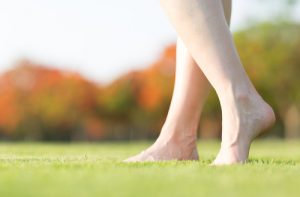 You’ve probably heard the old joke of a guest angrily asking the waiter “What’s that fly doing in my soup?” The waiter bends over, looks closely, and replies, “Looks like the backstroke, sir.” Arthritis in midfoot joints is no laughing matter, but we know your real question is probably, “Why there instead of other joints like ankles, knees or hips?” The answer to that may depend on your medical history.
You’ve probably heard the old joke of a guest angrily asking the waiter “What’s that fly doing in my soup?” The waiter bends over, looks closely, and replies, “Looks like the backstroke, sir.” Arthritis in midfoot joints is no laughing matter, but we know your real question is probably, “Why there instead of other joints like ankles, knees or hips?” The answer to that may depend on your medical history.
Do you remember injuring your foot at some time in the past? A foot fracture, especially one involving the bones of the Lisfranc joint complex, often leads to the condition later. This could happen in a car accident, a fall, or a sports injury.
A bad sprain of the foot that dislocated some of the bones could also lead to midfoot arthritis. Many times the ligaments are never fully reconditioned, so they cause weakness unstable joints that move around more than normal. The additional movement wears on your bones.
Are you over 60? Natural degeneration of joints also occurs over time from wear. The bones in your midfoot move with each step you take, which could reach well over 200 million in your lifetime if you walk 7500 per day and live to age 80. We wouldn’t expect most machines to last under that sort of pressure, so it’s amazing that our feet can put up with it without having even more problems than they do.
One other reason is the shape of your arch. If you’ve always been flat-footed, or developed adult-acquired flat foot from a weakening of the tendons holding up your arch, your foot bones may experience more wear than those who have a neutral arch.
So what’s that arthritis doing in your midfoot? Not the backstroke! But it does behave the same there as it does anywhere else in your body, causing pain, inflammation, and stiffness. It also may be hampering your activities, because when it hurts, you don’t want to move and make it worse.
The odd thing is, moving may actually help make it feel better. Stretching and mild exercise may keep the joints more limber and help manage arthritis pain. Other conservative therapies can also relieve symptoms and allow you to stay active, and surgery may be an option, too. Call Southern California Foot & Ankle Specialists at (949) 364-9255 (WALK) to find out what we can do for you.
